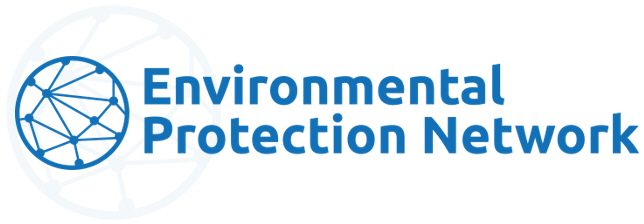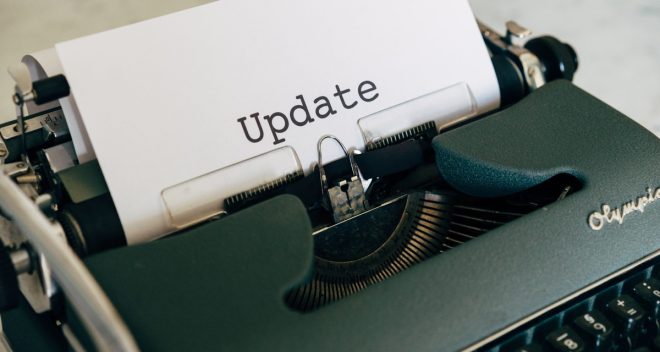Please share this information widely! And please sign up to receive these updates in your inbox every 2 weeks or so.
1) Congratulations to the communities and government agencies who were recently awarded agreements through the Environmental Justice Collaborative Problem Solving Cooperative Agreement and Environmental Justice Government-to-Government grant programs. If you were a recipient or part of a coalition that received funding and worked with EPN, please let us know by emailing info@environmentalprotectionnetworwk.org.
2) The Climate Pollution Reduction Grants (CPRG) Implementation Grants Competitions EPA announced the availability of $4.6 billion across two implementation grant competitions, one general competition and one specifically for Tribes and territories. Under these competitions, eligible applicants will compete for CPRG implementation grants to fund measures in their state-, municipality-, Tribe-, or territory-specific climate action plans. As part of its evaluation of applications, EPA will prioritize measures that achieve the greatest amount of GHG emissions reductions. The deadline to apply to the general competition is April 1, 2024. The deadline to apply to the Tribes and territories competition is May 1, 2024.
If you and/or the organization you are affiliated with would like to be connected to state officials working on this process to ensure your voice is heard on state priorities, please fill out our survey ASAP!
3) Low-Income Communities Bonus Credit Program: Eligible applicants can now apply to receive a 10- or 20-percentage point boost to the energy investment tax credit for qualified solar or wind facilities that are in low-income communities or on Tribal land, are part of affordable housing developments, or benefit low-income households.
To allow the public time to prepare competitive applications, all applications received within the first 30 days (October 19th-November 18th) will be treated as having been received at the same time. After the first 30 days, applications will be accepted and reviewed on a rolling basis while capacity remains through early 2024.
The DOE review team has provided reminders as you are filling out your application to help avoid errors. And new FAQs have been added to the FAQ document found on the program website at Low-Income Communities Bonus Credit Program | Department of Energy. Questions can be directed to the Support Desk at EJBonusSupport@hq.doe.gov.
To help applicable entities prepare for this opportunity, Lawyers for Good Government (L4GG) and the Clean Energy Counsel have created a Low Income Communities Bonus (LICB) Fact Sheet. They also note that there are limited allocations each year, so if you (or your allies) have a wind or solar project that will be completed within the next 12 months, is less than 5 MW, and may be in or benefit a low-income community, it is recommended that you review the fact sheet and prepare to file for an allocation ASAP.
Also, WRI recently put out a report on Catalyzing Local Clean Energy: A Roadmap for Maximizing Inflation Reduction Act Opportunities and Community Benefits. The guidebook provides a detailed breakdown of new clean energy tax credits and bonuses available to local governments and other eligible entities. It also includes several sample case studies showing how local governments can use these incentives in their clean energy planning as well as analyzing the savings and community benefits these incentives could provide to local governments of all sizes, types, and geographic locations.
4) EPN will hold SAM.gov registration office hours on November 22nd, December 5th, and December 20th. EPN staff will help you begin, continue, or finish up your registration process. As a reminder, federal funding applicants must have an active SAM.gov and Grants.gov registration in order to apply. To sign up and get the Zoom link, go to tinyurl.com/EPNSAM. Please email davina.resto@environmentalprotectionnetwork.org with any questions.
5) Lawyers for Good Government (L4GG) 2024 Funding Clinic is currently accepting applications. 15-20 overburdened communities will be chosen to receive free direct legal services that are not litigation-related (i.e. lawsuits that are filed before a court). The legal services are tailored to the community’s needs and are absolutely free. If you’re interested in receiving these services in 2024, please complete the Application Form by November 30, 2023. For questions about the Clinic, including information about the request for proposal process and the timeline for Clinic participants, please contact Jillian Blanchard at Jillian@l4gg.org.
6) The California Department of Toxic Substances Control (DTSC) Technical Assistance Grant (TAG) program provides grants ranging from $40,000-$150,000 to vulnerable communities to hire and direct an independent technical advisor who can assist in analyzing, interpreting, and communicating complex environmental information to residents living within a 5-mile radius of an active DTSC cleanup project. For current information, helpful links, resources, and to register for an informational webinar on December 6 about the TAG program, visit their webpage. Applications are due January 15, 2025.
7) DOE’s Communities Local Energy Action Program (LEAP) Cohort 2 is open for applications. Under this second phase of the initiative, DOE will provide technical assistance services valued at over $18 million to support 24-32 communities to develop and advance their own community-driven clean energy transition approach. The application deadline to apply is December 14, 2023, at 5:00 p.m. ET. Selections are expected to be announced in March of 2024.
8) EPA’s $500 million 2023 Clean School Bus Rebate program provides funding to school districts and other eligible applicants for electric school buses and charging infrastructure. Applications are due January 31, 2024, at 4:00 p.m.
WRI’s Electric School Bus Initiative is helping districts take advantage of this and other funding sources by providing free resources on the school bus electrification process, including a step-by-step guide, a power planner for working with electric utilities, and a market report/buyer’s guide detailing the electric school bus models on the road today. If you need help, please reach out to WRI for support.
9) Communities First Fund’s (CFF) Rapid Response Fund will provide funding to support organizations’ or coalitions’ needs to position themselves or others to respond to infrastructure crises, movement moments, and time-sensitive federal funding notices or rulemakings that require rapid mobilization. The Fund has a national scope with specific priority given to geographies that have historically received disproportionate public investment, including the Midwest and the South. Applications will be reviewed bi-monthly (1st Friday and 3rd Friday of each month), and awards will be determined by the CFF team. The Rapid Response Fund is limited to $1,000,000. Grants will be distributed on a rolling basis until the fund is spent down. Awards will range between $10,000 – $100,000 depending on scope and scale of the work funded.
10) Direct Pay: The Congressional Progressive Caucus Center (CPC Center) is working to ensure that communities across the country have the information and assistance they need to seize on a huge opportunity through the Inflation Reduction Act (IRA) called Direct Pay (aka Elective Pay). Direct Pay is a historic provision of the IRA and allows tax-exempt (i.e. government and nonprofit) entities to claim clean energy project tax credits that had previously only been available to for-profit entities (i.e. corporations). Now, organizations such as towns, schools, hospitals and more can receive funding for installing solar panels, purchasing electric vehicles, or completing other clean energy initiatives. The CPC Center has developed a number of resources breaking down Direct Pay, which can be accessed here. They are also providing technical assistance to eligible entities interested in taking advantage of Direct Pay. To receive updates on new resources or request technical assistance, sign up here.
11) DOE’s Clean Energy to Communities (C2C) program provides communities with expertise and tools to achieve their clean energy goals.
– Expert Match accepts requests at all times, and requests are reviewed on a rolling basis. Expert Match provides 40–60 hours of technical assistance over the course of 3 months to help communities address short-term energy goals through tailored strategic support.
– Watch the recording of this recent C2C informational webinar to learn more. Feel free to reach directly to the team at C2C@nrel.gov with any questions.

